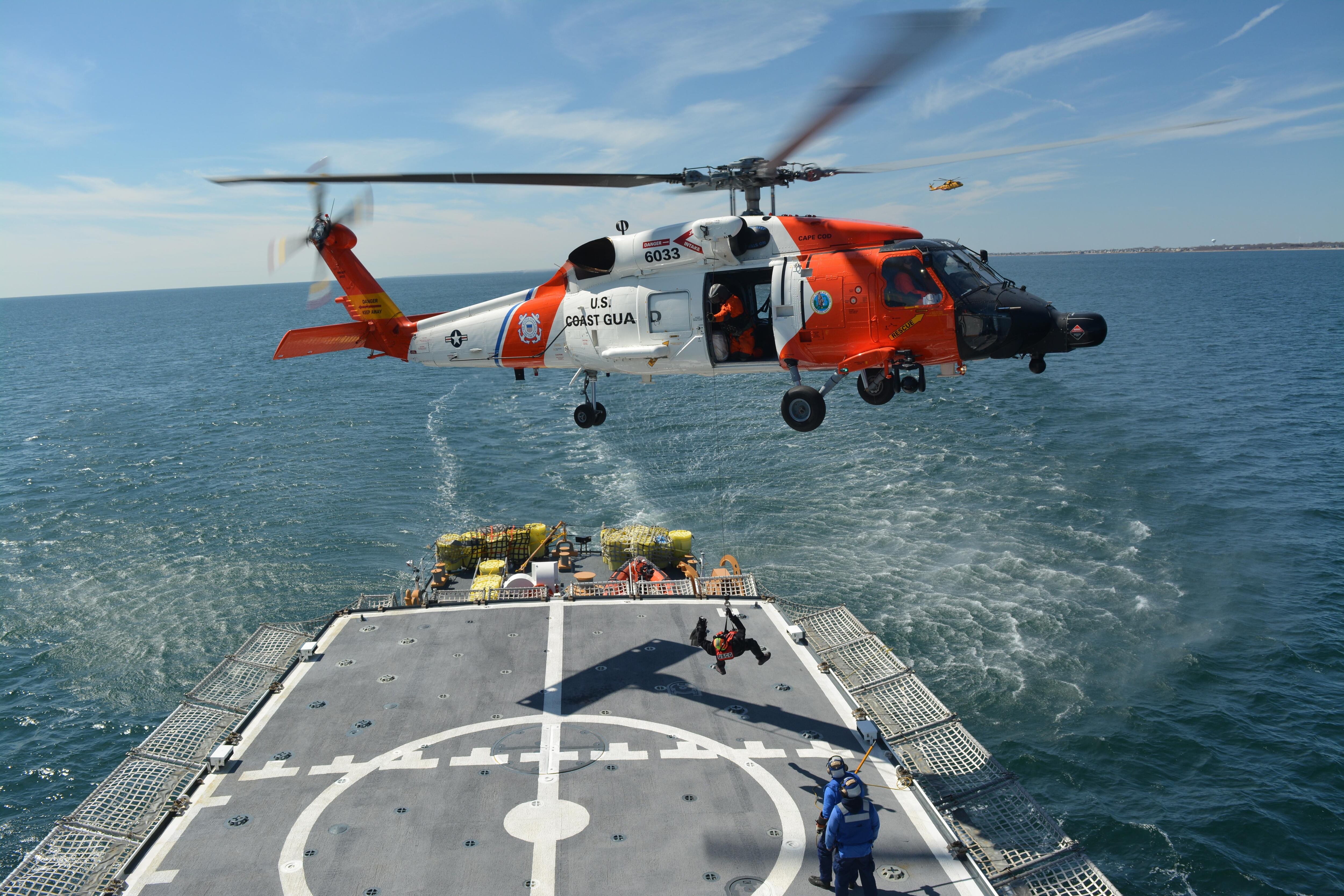The Coast Guard could be facing a major overhaul as bipartisan reform legislation continues to work its way through Congress. The Coast Guard Authorization Act of 2015 impacts everything from funding and structure to acquisition reform and accountability at the agency.
The House passed the bipartisan legislation May 18, and the Senate Commerce Committee, which oversees the Coast Guard, is working on its version of Coast Guard legislation, according to the committee.
Rep. Duncan Hunter, R-Calif., the chairman of the Transportation and Infrastructure Committee, said the legislation is an important step in ensuring that the Coast Guard continues to have the resources it needs.
"As the process moves forward, I look forward to working with the Senate to ensure a strong final product," Hunter said.
The bill would authorize funding for the Coast Guard for the next two years — fiscal 2016 and fiscal 2017 — at the current $8.7 billion in funding. The two-year period helps provide stability to the Coast Guard and allows for better long-term planning, according to bill supporters.
The stability will help the agency rebuild and revamp its aging Coast Guard cutter fleet, according to Rep. Garret Graves, R-La.
"The bill authorizes funding for the Coast Guard at levels that are reasonable, but would still allow the Coast Guard to recapitalize its aging cutters in a timely manner," Graves said.
But the legislation also makes structural changes to the Coast Guard chain of command. The vice service chief at the agency would be given the rank of admiral to align itself more closely to the structures of the other military services.
The Coast Guard would also see the reinstatement of the chief of staff position, which was discontinued in 2011, according to the bill.
The bill would also allow the president to appoint additional Coast Guard admirals to positions within the executive branch, such as to the Joint Chiefs of Staff, which has been requesting that the Coast Guard be represented.
The Coast Guard would be required to establish performance data and success metrics for a program or project before it is begun, in order to measure whether the program is meeting minimum performance standards during its development.
The Coast Guard would also have to provide Congress with more detailed information about its program performance and project spending in order to ensure better oversight of its large program.
Part of that requirement would be to implement a standard for tracking the number of days Coast Guard cutters are in operation at sea, and include days in which cutters are undergoing maintenance or repair.
The Government Accountability Office would be required to review the metrics by which the Coast Guard evaluates the performance of its missions to determine their effectiveness, according to the law.
The Coast Guard would also be authorized to conduct a pilot program to test the effectiveness of commercially available technology to help improve the maintenance and readiness of its cutter fleet.
The legislation also authorizes the Coast Guard to recoup the costs of patrolling and ensuring the safety of private maritime events such as fireworks, according to the legislation. Currently the Coast Guard does not seek reimbursement for these events, but the legislation would authorize the Coast Guard to determine the costs it incurs and seek reimbursement.
"While Coast Guard presence is important to ensure public safety, the event itself often does not provide a public benefit," according to a committee report released with the legislation.
"American taxpayers should not have to pay the bill for ensuring the safety of waterways aroundprivate parties", said Coast Guard and Maritime Transportation Subcommittee Chairman Duncan Hunter. "This provision would protect taxpayers by making the sponsor of the party pay those costs."
The bill would also cut outdated reports, including the Distant Water Tuna Fleet report, as well as an annual report updating the liability from oil spills. Instead, the Coast Guard would only craft that report the year after an oil spill occurred.
Rep. Peter DeFazio, D-Ore., the ranking member of the Transportation and Infrastructure Committee, said he looked forward to getting the legislation through the Senate and signed into law.
"For more than 100 years, the Coast Guard has kept our ports and waterways secure, protected our shores and communities, and responded to disasters or emergencies affecting our mariners, fishermen and the general public," DeFazio said. "Congress must ensure that the Coast Guard has the resources and assets necessary to accomplish its mission, and this bipartisan bill attempts to meet that shared goal."■





